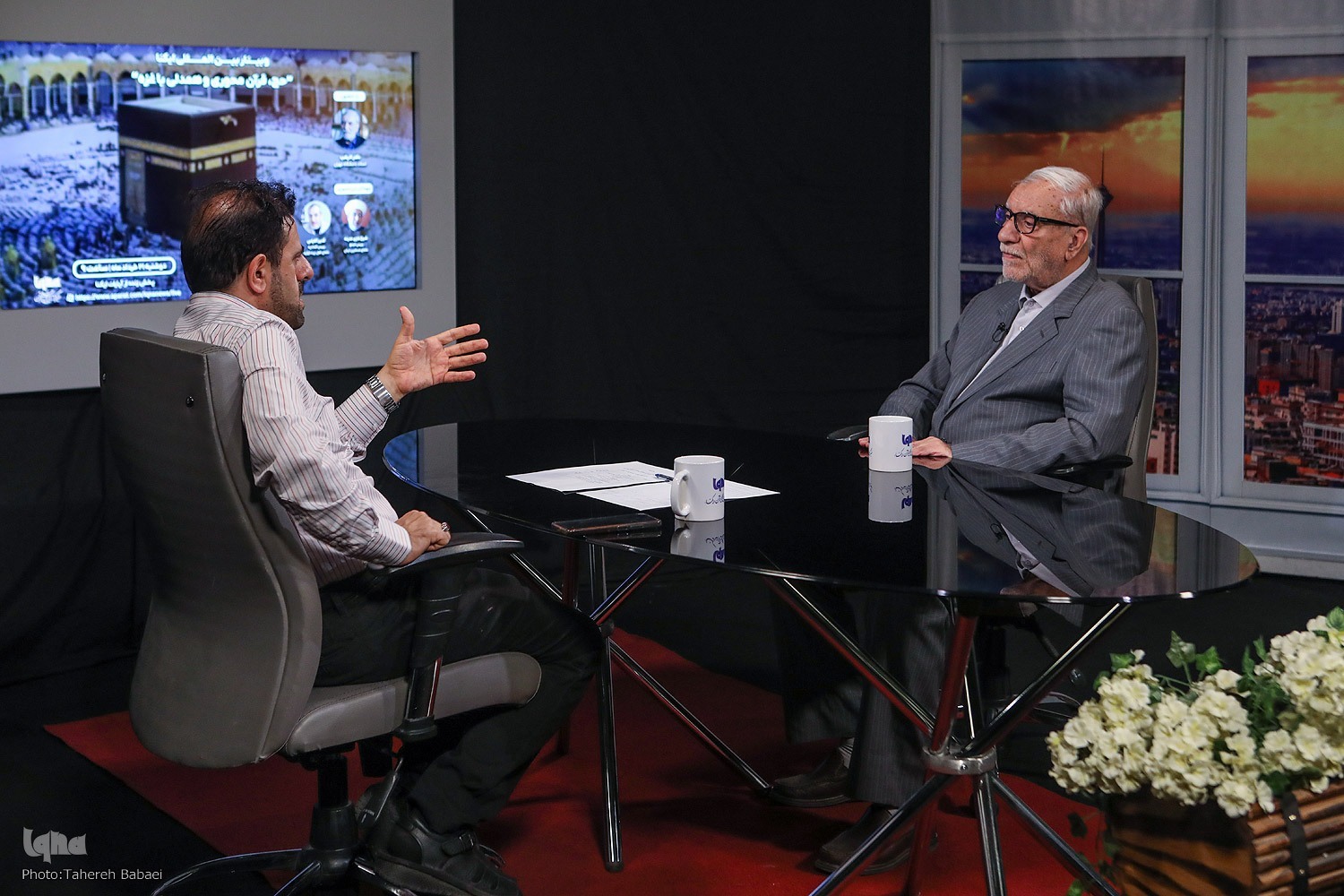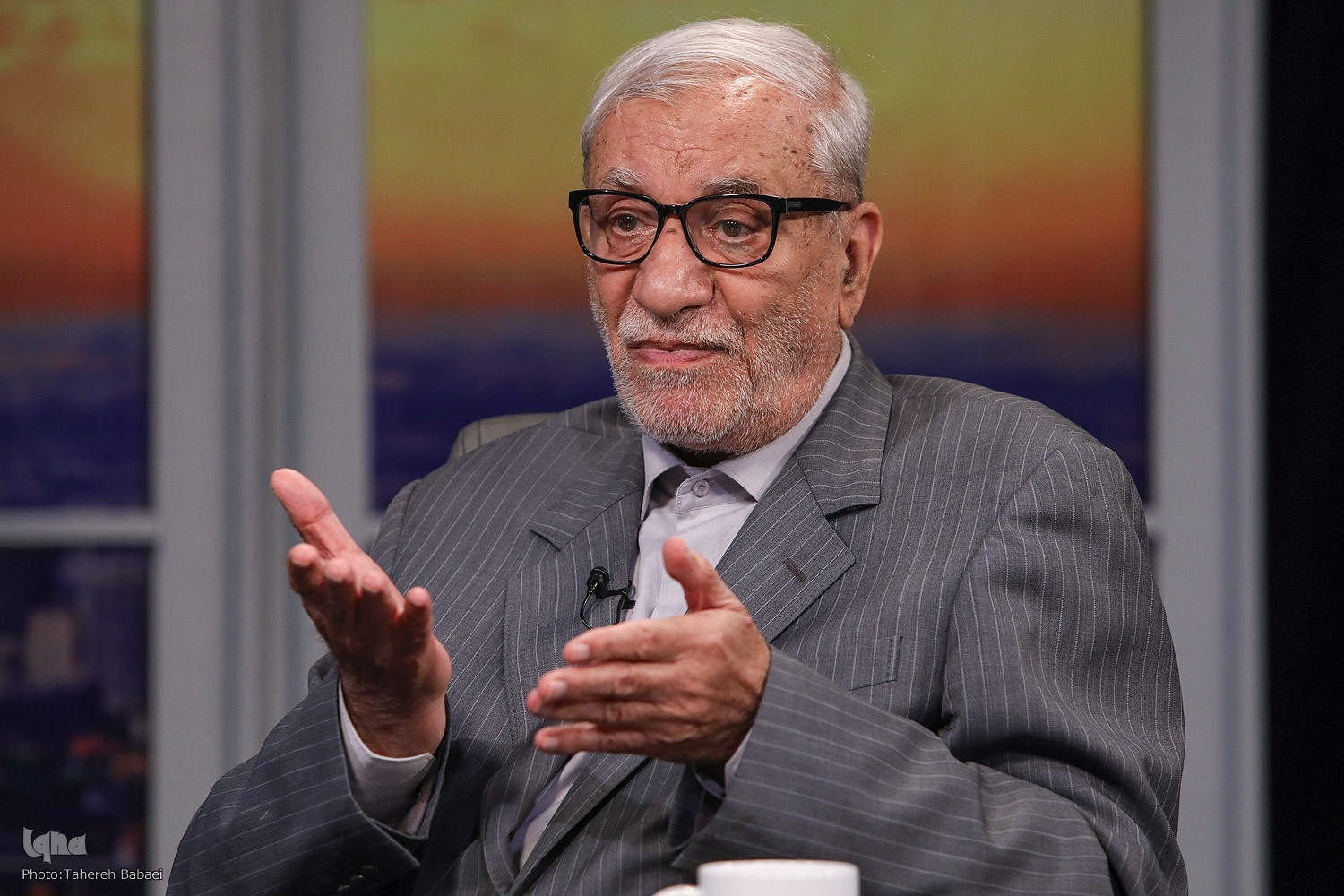Prof. Stresses Need for Universal Disassociation from Israel, US Regimes

Professor Mohammad Ali Azarshab, a professor of Arabic Language and Literature at the University of Tehran, made the statement while addressing the “Hajj, Quran-centrism, And Sympathy with Gaza” webinar, which was organized by the International Quran News Agency (IQNA) on Monday, June 10.
“Firstly, we need to understand the comprehensive meaning of ‘disavowal’. Secondly, this concept should not be confined to the Hajj,” he said.
It’s commendable that on the Hajj days and Eid al-Adha, the entire Islamic world is moving towards declaring their disassociation from polytheists, he said.
“Today, declaring disavowal doesn’t merely mean stating our disassociation, but it also involves condemning them and expressing our opposition,” he said as the Israeli regime’s attacks on Gaza since October last year have killed more than 37,000 Palestinians, mostly women and children.
Read More:
“Observe that today, this disavowal is evident in universities, among students and professors in Europe and America,” he said, referring to the campus encampment protests that erupted in solidarity with Palestine in several Western states.
“It’s beneficial to establish coordination between the Islamic world and all of humanity to disassociate from those who perpetrate oppression and violence,” Azarshab said.
“People worldwide, not just in the Islamic world, should declare their disassociation from American and Zionist agents who are causing harm to the people of Gaza today,” he noted.
Read More:
“This year, it would be fitting to have a universal declaration of disassociation at the level of Europe, America, the Islamic world, and beyond on the day of Eid al-Adha, disassociating from polytheists and all factors that hinder progress and humanity,” the professor added.

He said disavowal should continue throughout the year, adding, “The essence of acquittal is that we reject your plan, we don’t follow your words, and we are following the path of divine evolution, while you are acting against humanity.”
“One of the objectives of the Hajj is to promote unity,” he highlighted elsewhere, adding, “The concept of monotheism is evident in Hajj.” The entire Hajj ritual revolves around monotheism, but alongside monotheism, there’s a focus on unity, he said.
“Hajj serves as a call for unity across the globe, and if the Islamic world overlooks this and people do not strive for unity, situations similar to Gaza may arise in other parts of the Islamic world,” Azarshab said.
The situation in Gaza has highlighted the “pressing” need for unity, he noted.
Hajj has the potential to foster this unity as pilgrims, representing a portion of the Islamic world, should participate in Hajj in such a way that religious, tribal, ethnic, and regional differences are set aside, and pilgrims understand and respect each other, he said while citing verse 13 of Surah Hujarat: “We made you into nations and tribes that you might know one another.”
Read More:
“This respect and interaction should be practiced during Hajj and it can truly have a positive impact on the entire Islamic world,” he added.
Canadian thinker and Islamologist John Andrew Morrow, Head of Association of Muslim Scholars in Lebanon Sheikh Ghazi Hunaina, Head of Union of Ahl al-Bayt Scholars of Turkey Ghadir Akaras, and Head of Malaysian Consultative Council of Islamic Organizations (MAPIM) Muhammad Azmi Abdulhamid were among other speakers at the webinar.
4220748



